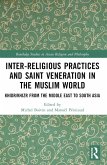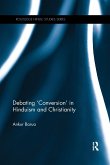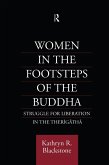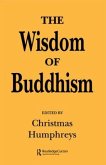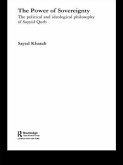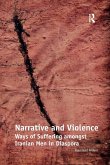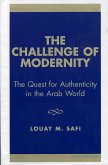This book explores gender, sexuality and religion in contemporary Indonesia. It is the first book-length analysis of the experiences of queer Muslims in Indonesia, and will be of interest to Gender and Sexuality Studies, Religious Studies, Asian Studies and Southeast Asian Studies, Islamic Studies and Queer Anthropology.
Hinweis: Dieser Artikel kann nur an eine deutsche Lieferadresse ausgeliefert werden.
Hinweis: Dieser Artikel kann nur an eine deutsche Lieferadresse ausgeliefert werden.
"Gender, Sexuality, and Islam in Contemporary Indonesia is a remarkable achievement. García Rodríguez's rich ethnographic analysis powerfully shows how queer Indonesian Muslims forge selfhoods of faith, desire, and community. This book will be valuable to scholars in religious studies, Southeast Asian Studies, queer studies, and to all interested in creative responses to exclusion in the context of religion, sexuality, and gender."
-- Tom Boellstorff, Author of The Gay Archipelago
"This book offers a fascinating analysis of the ways in which queer Muslims in Indonesia craft their identities as they creatively interweave their gender and sexuality, faith and spirituality. Doing so, the book develops an ethnographically informed critique of Western secular models of LGBT+ liberation, exploring the possibilities within Islam for queer worldmaking. It is a must-read for anyone interested in queer subjectivities in global contexts!"
-- Adriaan van Klinken, Author of Kenyan, Christian, Queer
"Diego Garcia's book is a triumph. Beautifully written and based on empathetic ethnography, he shows that Islam and queerness can be compatible sources. Diego sensitively reveals how the formation of queer Muslim subjectivities is shaped through ongoing and fluid negotiations of gender, sexuality and religion. This book expands knowledge about how Islam can promote social justice, and be lived as a personally and communally affirmative force. I will definitely be setting this book as required reading for my students of gender, sexuality and religious studies."
-- Sharyn Graham Davies, Author of Gender Diversity in Indonesia: Sexuality, Islam and Queer Selves
"This book vividly demonstrates the reality that religion and queerness are not essentially opposing social forces. By paying attention to the religious things people do in their everyday lives, Garcia shows us how queer Muslim identities and practices are created and sustained. He maps the queer 'religious geographies' that have emerged in Indonesia and invites readers to see the agency of the people who inhabit them - agency derived from, not inhibited by, their religious practices."
-- Nancy T. Ammerman, Author of Studying Lived Religion: Contexts and Practices
"This volume makes a convincing case of the value of queer Muslim agency in Indonesia. Based on rich ethnograhic fieldwork the author portrays how Islam in its relation to family and educational practices can be a source on spiritual empowerment for the lesbian, gay and trans narrators. This discussion is a welcome critique on the overriding homosecularism in much of Western queer discourse."
-- Saskia Wieringa, Author of Sexual Politics in Indonesia
"Diego García succeeds brilliantly in writing a detailed and nuanced ethnography of queer Muslim Indonesians and how they actually utilise religion to be individual agents in building their well-being. This work is useful for community members, activists and allies in Indonesia, perhaps in other parts of the Muslim world as well. Theoretically, it is an unequivocal piece of evidence of the role of individual agency, the possibility of uniqueness in a human collective, and the viability of queering and questioning religion."
-- Dédé Oetomo, Founder & Trustee, GAYa NUSANTARA Foundation
"This book is well-grounded research on genders and sexualities in contemporary Indonesia. It remarkably transports the current debates on homonationalism and homosecularism to the Muslim-majority country and thus offers an intimate, insider, and nuanced account of how both Islam and queer sexualities are embraced by queer Indonesians for their everyday liberation. Read this book and get prepared for queer Muslim liberation!"
-- Hendri Yulius Wijaya, Author of Intimate Assemblages and co-editor of Queer Southeast Asia
"This meticulously researched book offers fascinating and inspiring insights into the lives of queer Muslims and their allies in Indonesia. Framed by an engaging storytelling approach and a postcolonial ethnographic framework, the book offers in-depth and thought-provoking narratives that interrogate expertly various aspects of queer Muslims' lives within the Indonesian context, as they navigate highly sensitive political, religious, and cultural terrains and geographies. This book balances deftly intellectual rigour and an accessible writing style. It is an important and outstanding contribution to current debate on the complex intersection between sexuality, gender, ethnicity, and religion in a globalised world."
-- Andrew Kam-Tuck Yip, Co-editor of Intersecting Religion and Sexuality
"How are queer Muslim subjectivities shaped by family, education, social encounters and the media? How does progressive Islam inform the work of allies in trying to develop strategies that are queer inclusive? These are the questions Dr Diego Garcia Rodriguez asks in his compelling study of queer Muslims in contemporary Indonesia. Drawing on extensive fieldwork and a rich archive of interviews, this book makes a striking intervention which will become essential reading to students and scholars of queer Muslim experience and nationhood in Indonesia and beyond."
--Ben Murtagh, Reader in Indonesian and Malay, SOAS University of London
-- Tom Boellstorff, Author of The Gay Archipelago
"This book offers a fascinating analysis of the ways in which queer Muslims in Indonesia craft their identities as they creatively interweave their gender and sexuality, faith and spirituality. Doing so, the book develops an ethnographically informed critique of Western secular models of LGBT+ liberation, exploring the possibilities within Islam for queer worldmaking. It is a must-read for anyone interested in queer subjectivities in global contexts!"
-- Adriaan van Klinken, Author of Kenyan, Christian, Queer
"Diego Garcia's book is a triumph. Beautifully written and based on empathetic ethnography, he shows that Islam and queerness can be compatible sources. Diego sensitively reveals how the formation of queer Muslim subjectivities is shaped through ongoing and fluid negotiations of gender, sexuality and religion. This book expands knowledge about how Islam can promote social justice, and be lived as a personally and communally affirmative force. I will definitely be setting this book as required reading for my students of gender, sexuality and religious studies."
-- Sharyn Graham Davies, Author of Gender Diversity in Indonesia: Sexuality, Islam and Queer Selves
"This book vividly demonstrates the reality that religion and queerness are not essentially opposing social forces. By paying attention to the religious things people do in their everyday lives, Garcia shows us how queer Muslim identities and practices are created and sustained. He maps the queer 'religious geographies' that have emerged in Indonesia and invites readers to see the agency of the people who inhabit them - agency derived from, not inhibited by, their religious practices."
-- Nancy T. Ammerman, Author of Studying Lived Religion: Contexts and Practices
"This volume makes a convincing case of the value of queer Muslim agency in Indonesia. Based on rich ethnograhic fieldwork the author portrays how Islam in its relation to family and educational practices can be a source on spiritual empowerment for the lesbian, gay and trans narrators. This discussion is a welcome critique on the overriding homosecularism in much of Western queer discourse."
-- Saskia Wieringa, Author of Sexual Politics in Indonesia
"Diego García succeeds brilliantly in writing a detailed and nuanced ethnography of queer Muslim Indonesians and how they actually utilise religion to be individual agents in building their well-being. This work is useful for community members, activists and allies in Indonesia, perhaps in other parts of the Muslim world as well. Theoretically, it is an unequivocal piece of evidence of the role of individual agency, the possibility of uniqueness in a human collective, and the viability of queering and questioning religion."
-- Dédé Oetomo, Founder & Trustee, GAYa NUSANTARA Foundation
"This book is well-grounded research on genders and sexualities in contemporary Indonesia. It remarkably transports the current debates on homonationalism and homosecularism to the Muslim-majority country and thus offers an intimate, insider, and nuanced account of how both Islam and queer sexualities are embraced by queer Indonesians for their everyday liberation. Read this book and get prepared for queer Muslim liberation!"
-- Hendri Yulius Wijaya, Author of Intimate Assemblages and co-editor of Queer Southeast Asia
"This meticulously researched book offers fascinating and inspiring insights into the lives of queer Muslims and their allies in Indonesia. Framed by an engaging storytelling approach and a postcolonial ethnographic framework, the book offers in-depth and thought-provoking narratives that interrogate expertly various aspects of queer Muslims' lives within the Indonesian context, as they navigate highly sensitive political, religious, and cultural terrains and geographies. This book balances deftly intellectual rigour and an accessible writing style. It is an important and outstanding contribution to current debate on the complex intersection between sexuality, gender, ethnicity, and religion in a globalised world."
-- Andrew Kam-Tuck Yip, Co-editor of Intersecting Religion and Sexuality
"How are queer Muslim subjectivities shaped by family, education, social encounters and the media? How does progressive Islam inform the work of allies in trying to develop strategies that are queer inclusive? These are the questions Dr Diego Garcia Rodriguez asks in his compelling study of queer Muslims in contemporary Indonesia. Drawing on extensive fieldwork and a rich archive of interviews, this book makes a striking intervention which will become essential reading to students and scholars of queer Muslim experience and nationhood in Indonesia and beyond."
--Ben Murtagh, Reader in Indonesian and Malay, SOAS University of London


